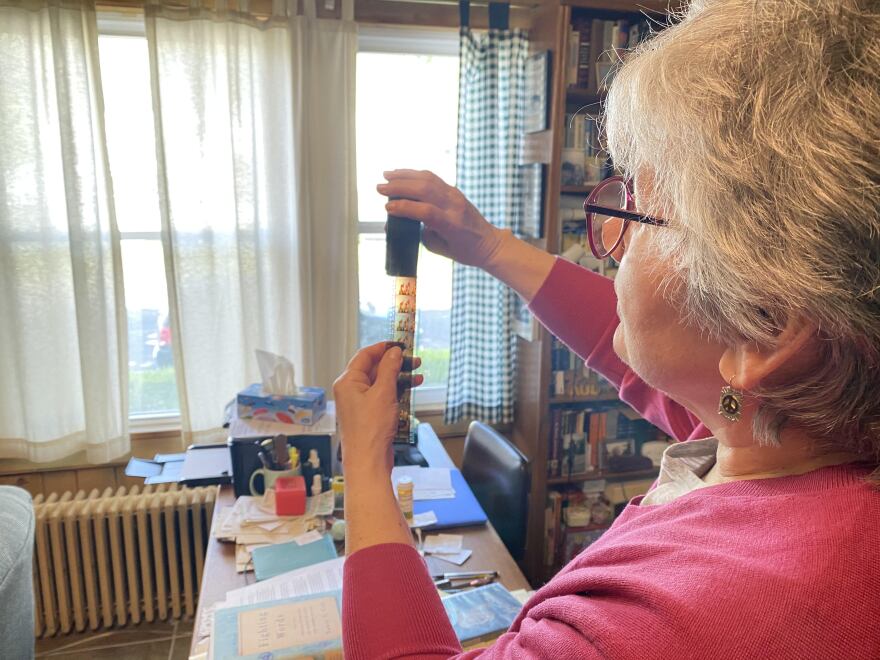Every field of study has its centers of interest and its North Stars of innovation and creativity. For film lovers, there are many names that, since the dawn of Victorian cinema in the 1890s, have been standouts creators of cinema. Eisenstein, Dziga Vertov, Truffaut, Godard, Cassavetes, Lois Weber, Jonas Mekas, Spike Lee, Chaplin, Andy Warhol, Kubrick, Maya Deren….
No star shines more brightly than Swedish writer/director Ingmar Bergman, whose film career spanned fifty years. The Seventh Seal, Persona, Wild Strawberries, Through a Glass Darkly, Smiles of a Summer Night, Cries & Whispers, The Passion of Anna, The Silence, and so many more. Bergman was capable of tackling plotlines about existential crises with intelligence. What is the meaning and purpose of life? Is there a god?
In 2004, documentary filmmaker Marie Nyrerod edited together three documentary shorts she had made, intimate interviews with Bergman, to produce a telling feature-length documentary called Bergman Island, shot on Bergman’s famous home turf, Faro Island. This film is available for streaming and is highly recommended to those who cherish Bergman’s works.
Skip now to 2021, to the release of another feature film called Bergman Island. This is a fiction film by filmmaker Mia Hansen-Love. Since one cannot copyright a title, Hansen-Love had every right to call her film Bergman Island. Frankly, I consider it a bold move because, by doing so, she is raising her work into the realm of Ingmar Bergman. However, unlike a number of Hansen-Love’s other films which are thought-provoking and well-conceived, her Bergman Island film fails.
The story follows a couple, two filmmakers, who are spending time developing projects on Faro Island, in tribute to the Swedish master. The woman, Chris, played by Vicky Krieps, appears too ignorant of Bergman and his work to be believable. The man, Tony, played by Tim Roth, goes off after a while. We are left with a story centering on characters created by Chris. Fact and fiction blur. The storyline drops from promising to disappointing.
For a more powerful example of Hansen-Love’s abilities, I would cite Things to Come from 2016. She based the screenplay on her own mother’s life. In this film, the wonderful French star Isabelle Hubbert plays Nathalie, a middle-aged philosophy professor who must deal with one crisis after another. Her world falls to ruin as, all at once, her unbalanced mother, who cries for an imminent death, actually dies. Then her husband goes off with another woman. Then she loses her significant book deal.
Throughout Things to Come, Nathalie faces change. She can deal with it or fall apart. The characters around her are moving forward, or at least showing life movement in one direction or another. Even her mother’s pet cat, Pandora, is forced into adapting to change.
As Nathalie chooses new company, mainly people younger than herself, she also must face the fact of aging. To my knowledge, Isabelle Hubbert has never given a weak performance. In Things to Come, she brings her character to powerful life. This film is an example of successful feminist filmmaking. Its deep philosophical search for meaning in life as changes occur brings viewers closer to the concerns of Ingmar Bergman than in Hansen-Love’s more pretentious new film Bergman Island.
Audrey Kupferberg is a film and video archivist and retired appraiser. She is lecturer emeritus and the former director of Film Studies at the University at Albany and co-authored several entertainment biographies with her late husband and creative partner, Rob Edelman.
The views expressed by commentators are solely those of the authors. They do not necessarily reflect the views of this station or its management.




